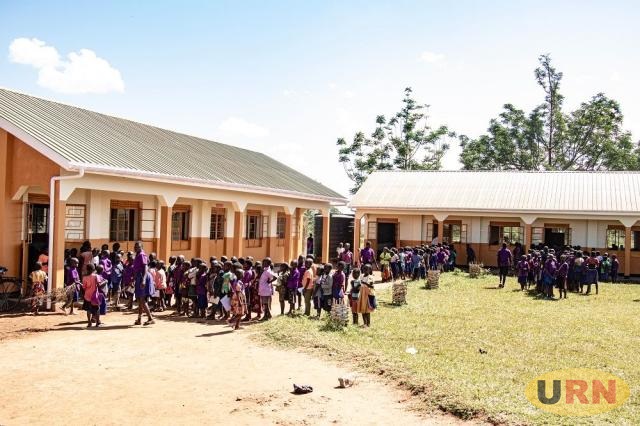
Oyam, Uganda | THE INDEPENDENT | The findings of a study conducted in the last three years has revealed that over 9000 Pupils dropout from Oyam Primary Schools annually.
A study conducted by the district Education department in 65 out of the 109 government aided primary schools in a period of three years have revealed that 28,109 pupils have dropped out; 9,520 in 2020, 9,086 in 2022 and 9,503 in 2023.
According to the study, dropping out among pupils starts right from primary one to primary seven. For example, in 2023, 1,641 pupils dropped out from P.1 while 1,029 pupils dropped out in P.7 across the 65 schools.
David Adea, the Oyam District Senior Education Officer who expressed concern over the high rate of school dropout attributed it to challenges ranging from teenage pregnancy to child labour.
Benson Ongom, the District Inspector of schools acknowledged that more girls’ dropout of schools compared to boys. He encouraged parents to ensure that girls go to and stay in school.
Scovia Akanyo, a parent of Akuce primary school blames parents for neglecting their roles and not providing for their children to stay in school thus forcing their children to dropout and resort to criminal activities like stealing and doing drugs.
However, Geneva Global, a charitable consulting company has launched the Speed School accelerated education program which gives an opportunity to primary-aged out-of-school children to attain formal education, learning the first three years of primary education in only ten months.
The program is operating in Oyam North specifically in the sub counties of Abok, Aleka, Otwal, and Ngai. The 10 primary schools where the program is being implemented were identified basing on their dropout rate and availability of structures from where lessons can be conducted.
The Oyam district inspector of schools believes that the program already has impacted in the lives of the learners who have so far received training for only three weeks.
“It has great impact in the learners that we are seeing in the way they communicate, the way they interact, the way they do their thing is in the classroom. At the end of year one, these children will be quite different from others.” He said.
Ongom urges other education stakeholders to join forces in ensuring continuity of the program even after the project ended.
Maxwell Okao, the head teacher of Akucawitim, one of the primary schools where the program is being implemented warned parents against withdrawing their children from the program saying keeping them at school is another way of curbing down crime within the community.
Under the program, the learner’s mothers are also organized into Self-Help Groups and trained on financial literacy which helps them to operate income-generating activities in order to be able to support their children’s future education.
*******
URN
 The Independent Uganda: You get the Truth we Pay the Price
The Independent Uganda: You get the Truth we Pay the Price





